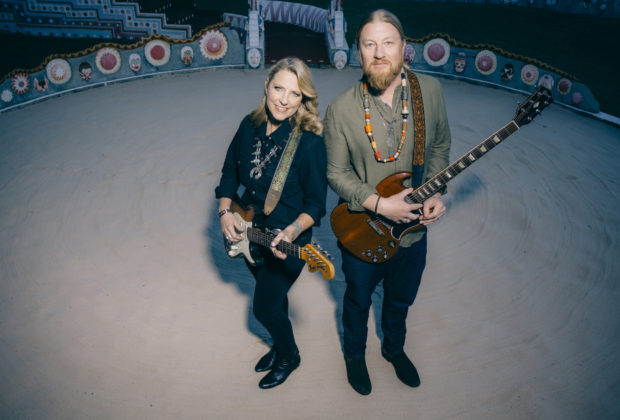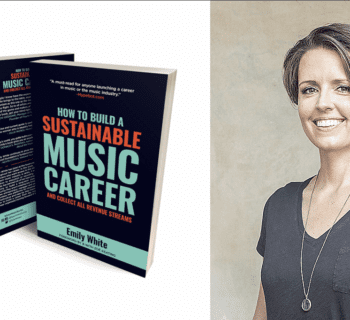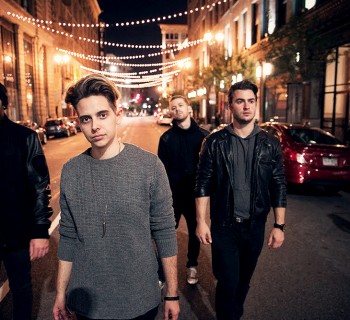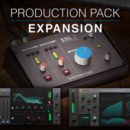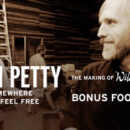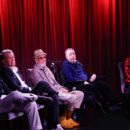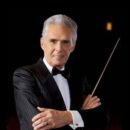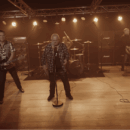Multiple Grammy-winning husband and wife team singer-guitarist Susan Tedeschi and guitarist Derek Trucks returns with one of their most ambitious and spiritually enriching recording projects to date. The Tedeschi Trucks Band’s I Am the Moon is a four-album collection that features 24 songs centered on the complex love story of Layla and Majnun written by 12th century Persian poet Nizami Ganjavi. Operatic in scope, Tedeschi Trucks Band explores romantic relationships, collective struggle, faith and the human condition all through the lens of their communal mix of rock, soul, blues, jazz and world beat.
The album is a true concept in every sense of the word, from the subject matter to the way the music is packaged and presented. I Am the Moon is divided into four parts: I. “Crescent”; II. “Ascension”; III. “The Fall”and IV. “Farewell.” Each “episode” of this project will be released in 2022, from late May to late August, each month as, first an individual online film that will coincide with a companion CD/digital release days later. On Sept. 9, a vinyl release will emerge. All four episodes will be available individually in 1-LP standard edition along with a 4-LP deluxe box set.
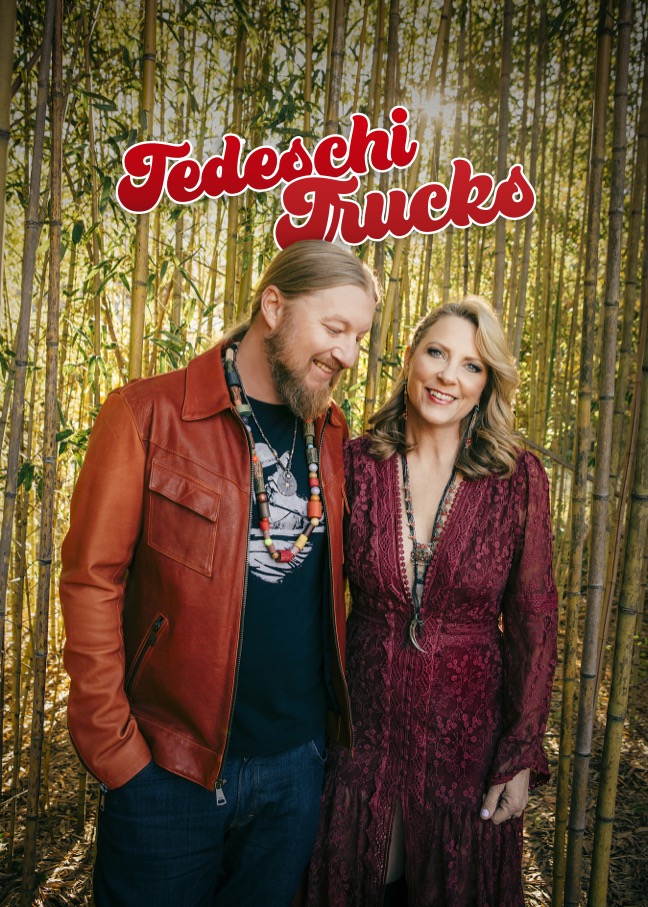
Music Connection: Congratulations on the release of I Am the Moon. It is quite an accomplishment.
Derek Trucks: Thank you, man. It was nice to have some work to do because we were all locked down at home.
MC: Yes, and we’ll get into that. Could we initially talk about your beginnings, when you were a young kid, adjusting to different situations and playing among so many accomplished musicians early on?
Trucks: I think ignorance is bliss, at some point (laughs). You don’t know you’re supposed to be intimidated? Especially, at a very young age, your eyes and ears are so wide open and you’re just taking it in. I was so fortunate to be around so many musicians who were very giving. Occasionally there would be some people who were competitive and weird, but usually it was pretty wide open. They would want you to succeed. And there is a lot to learn from musicians who have been at it their whole lives, no matter what skill level they were at. There’s a lot to learn from grizzled veterans (laughs).
MC: That’s a great point. You can always learn from someone, no matter their skill level.
Trucks: There is stuff I got from people I only saw once or twice. They maybe only had one or two things, but they were incredible, and they believed it and they were in it! I was really lucky early on in Jacksonville here. There was a band called Ace Moreland and West Side Story. It was made up of guys from Oklahoma and in the Jacksonville area. They were a great blues band around here. And they were in it! That’s where I learned about Howlin’ Wolf, Albert King, Hubert Sumlin and all this music I might not have come across as soon as I did. That’s good stuff to have floating around in your head when you start playing.
MC: So, you connected with the blues almost immediately?
Trucks: Yeah, at 9 or 10 years old, right when I started; the sound of Duane Allman’s guitar and Elmore James, that’s the stuff I heard around the house that I really gravitated toward. For me, the late ’80s/early ‘90s wasn’t an incredible time for music (laughs). I’m glad my parents had a good record collection that I didn’t push away from.
MC: So, beyond the blues you’ve pursued a lot of other kinds of music as well, correct?
Trucks: I was probably 12 or 13 years old when I started hanging with Col. Bruce Hampton and his band. I became open to a whole new world where I stopped listening to guitar players and started listening to horn players, singers and the whole Blue Note and Impulse Records era of the ‘50s/’60s. There was also Indian classical music and world music. And, you know, you stop listening to the things you were listening to. But if you go far enough down the road you realize they all lead back to the same place. You start finding connections between some of the Delta blues players and some of the Indian classical players. You figure out where things are coming from and leading to. Those are great moments that can really influence your playing and your sound starts becoming your own a little bit.
MC: How was this new project initially conceived and what is the main thrust of it?
Trucks:The pandemic downtime had a lot to do with it. We had been a hard touring act for, really, 30 years. As long as I’ve been on the road it’s been non-stop. We’ve never had enough time off as we’ve currently had. And that led to, one—having enough time to get away from playing, and two—really enjoying getting back in a room together and making music in a different way.
Mike Mattison, who is the lead singer in my solo band and is in this group, is a great songwriter and a thoughtful character. He had this idea early in the lockdown when we couldn’t all get together that maybe the band could dig into a book, work of art or some kind of source material and spend some time thinking about it. The thought was, when we would get back together there would be some ideas that would come out of it. So, Mike had this idea to dig into the 12th century poem by Nazimi about Layla and Majnun. Some people think it inspired, and was the Persian Romeo & Juliet. And part of that inspired the Layla record by Derek and the Dominos. A lot of it is about Majnun being in love with Layla and not being able to have her.
But Mike’s whole thing was to turn the story on its head and ask, “What was Layla’s take on all of this?” There is no mention of that on the original record, but the poem is thick with what she thought about it. So, we all read it and Mike came up with this great synopsis filled with his dark humor. And when we all got together, everybody had a lot of ideas and there were a lot of songs kicking around.
MC: Was it immediately apparent that Tedeschi Trucks Band was into recording their next album?
Trucks: We had no notion of making a record at that point. Once we got people tested and their families would turn them loose, they came down and stayed at our house and studio, played music, wrote tunes and, before we knew it, the album kind of took on a life of its own. We had more material than we knew what to do with. We started thinking about what it meant and what did we wanna do with it. We had the idea of breaking it up and making it episodic.
At this point, we were a year into the pandemic, with no gigs in sight. And we thought, let’s make a film with each record. Let’s do it differently. There is something nice about people tuning in and hearing the record, seeing the visuals; and this is happening the first time for everybody. A communal listening session was kind of the thrust of that idea. So, when it came to fruition on the first record, it was really nice. We had a little party at the house. My parents and siblings came over and we were watching it all for the first time with fans around the world. It was a cool thing to see the reaction in real time.
MC: So, this was a fresh way of marketing the new album?
Trucks: Yes. At least the last five or six records we put out, there’s a few singles that came out, a few digital tracks for free. By the time the album drops everyone knows it. You put on the record and there is no real unveiling. It’s not that exciting or fresh. I don’t know, but there’s something really exciting about going to a record store, getting the album, looking at the packaging, popping the record on and hearing all the material for the first time. So, that was the concept on the way we were gonna release this album.
We were lucky that our label Fantasy was into it, because this is not the typical way they did business when releasing a new record. There were no advance singles to play on the radio or anything like that. I was really pumped that they were behind what we were doing. Even getting the film made was not something we typically would have the time or budget for. So, it was really nice to be able to do it all.
MC: Talk about your relationship with filmmaker Alix Lambert. How did you connect with her?
Trucks: Mike Mattison was a Harvard English major. When he graduated, he went to Hungary as an expat for a few years, singing with jazz groups. He met a fellow expat, Alix, over there and they struck up a friendship. Since then, they’ve worked on a few artistic projects together. So, when we were thinking about putting visuals with the songs, we thought of her. And she was perfect for this because she sees and hears things differently. And we didn’t want this to feel conventional at all. We didn’t want the films to track too close to the story. We wanted to leave the films open to interpretation. And she did an amazing job in riding that line. The visuals don’t take way from the music. They add to it. There are a number of people in this band and Alix captured the character and personalities of everyone.
MC: What are the challenges of working with a large ensemble?
Trucks: Over the years of working with a large band we’ve come to realize when and how much gas to use at any given time. When you have that much sound and power, you wanna use it. But it’s important not to overuse it. And it’s important that all the ideas are musical and you’re not throwing things on it just to include everyone. You realize a 12-piece band can be an eight-piece band. It can also be a 4 piece or a duo. And I think this incarnation of the band is such where everyone just wants to contribute when appropriate, and that’s a good place to be.
MC: So, this was probably the right time to take on an extensive project like this because you were familiar with and could utilize everyone’s talents effectively.
Trucks: Totally! And we had done enough records where we didn’t have to do stuff we’ve already done. I didn’t think there was anything we had to prove as a band. So, we could just follow a song wherever it went. There doesn’t have to be this big heroic guitar solo here or Sue has to do this big vocal thing there. We were always mentally there, but I don’t think we embraced fully—if a song feels good, the concept’s good and the intention’s right, that’s enough! Now, however people take it, you can’t help that too much. But I think Sue and I are embracing what the band is, more and more.
MC: What is your writing process? How do you and Susan initiate songs with the band?
Trucks: It comes from a lot of different places. Some of the songs on the record—Gabe Dixon (keyboards-vocals) would bring a song almost completed and the band would play it. And if it felt good, the band would tweak it here and there. There would be songs where Sue and I are having breakfast and you pick up a guitar and stumble across some melody or pattern. And then you walk out into the studio and start fumbling with it. And then two or three band members fall in and you spend 2-3 hours working on a song. And then there are times when a song comes to you almost fully formed. Also, we might discover a groove during soundcheck. There are a lot of ways we go at it. When we’re in the studio we’re recording constantly because if we don’t, we might miss something really special.
MC: You’ve done so many different types of venues and shows. Can you recall one or two that really stand out for you, and why?
Trucks: There have been so many. We did that tour with B.B. King early on with this band. And there were some nights just getting to hang with B.B. before or after his set or listening to the band. Those are magical memories! The show we did with Leon Russell and Mad Dogs and Englishmen in 2015 at Lockn’ Festival was over-the-top good! We rehearsed long and hard for one show and it exceeded all our expectations. That isn’t always the case. That actually turned into a film called Learning to Live Together, which is still screened in some theaters.
We’ve been pretty fortunate to have gotten to play with a lot of our heroes. And even some of the nights when you’re mid-tour with the band. Certain shows are just magical and you can never plan for it. The good nights just come when they do and you have to be thankful for them (laughs).
MC: You guys played the White House. That must’ve been a real turning point!
Trucks: Yeah, that was pretty incredible. We played with B.B. King, Buddy Guy and Booker T that night!
MC: What is a typical day on tour for Tedeschi Trucks Band?
Trucks: Well, it really all depends on the type of tour. This summer tour is three bands. And we try to get there early to see everybody. We soundcheck early. We’re at the venue all day for these gigs. And it’s a long hot summer. This tour is all about hydration (laughs)! We have a rehearsal room set up in the dressing rooms each night, so I think we will be doing a lot of shedding and playing on this run. We’ve never done a tour like this behind so much new material.
MC: Have tours in the past integrated a lot of cover and traditional songs along with newer original material?
Trucks: That’s what we’ve always done. We kinda grew up in that tradition of what we’ve all been a part of. We play tunes from my solo band and Susan’s solo band. We have quite a few records with this group to dig in to. We just always play songs that shaped the band and inspired us; some of that Leon Russell and Mad Dogs and Englishmen, Derek and the Dominos stuff.
MC: What’s your most memorable experience interacting with fans?
Trucks: That’s interesting! We’ve been at this for so long that we’ve had people at shows who end up becoming life-long friends or family, almost! There’s not much division for us (laughs). We’re kind of in it and of it.
MC: How do audiences react to you around the world?
Trucks: We’ve been pretty lucky. It’s pretty uniform, but there are different personalities in different countries. Germany seems a little more reserved, but they’re listening hard. We’ve had some incredible crowds over there. It’s just a different energy. And then we’ll play Italy or Spain and it’s like we’re in the South. They’re a little rowdier (laughs). It’s just a different spirit. But it’s like that in the States too. We’re going to Europe for a month in the fall and planning on going to Japan next year. We’re really lucky we can go to these places and play similar size venues like we do in the States.
MC: Finally, what’s the secret to a good relationship, balancing family, career and all of it?
Trucks: It’s really communication. We try to keep the lines of communication with our band and our relationship just wide open. It’s tough at times. Susan and I have been married 20 years now. There are highs and lows that feel insurmountable. But when you know you know and you just work at it. Just like a band or anything, it takes compromise. But a lot of times that leads you to places where you’re better off.
Contact Ailie Orzak, aorzak@shorefire.com
Photos by David McClister

